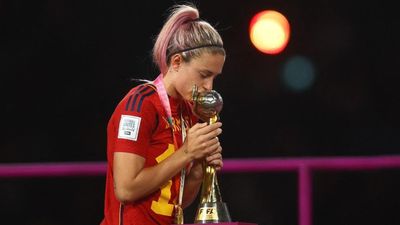In the wake of Spain's historic triumph over England at the Sydney Olympic Stadium, two-time Ballon d'Or winner and World Cup champion, Alexia Putellas, voiced her growing disenchantment concerning the recurring challenges facing women's football. Spain's thrilling 1-0 win secured their first-ever FIFA Women's World Cup title, but behind the scenes, there are concerns that continue to overshadow these landmark achievements.
In an exclusive interview with MARCA, Putellas didn't mince words when addressing these issues, indicating that the problems within the realm of women's football are far from isolated. In fact, controversies have been making headlines consistently, which FIFA cannot afford to ignore. A prominent instance from last year highlighted 15 players from Spain's national team openly rebelling against the leadership style of head coach Jorge Vilda. This rebellion occurred post their European Championships exit, instigating a palpable discord between the players and the national football governing body.
Putellas remarked, "It annoys me because it's not just one country. It's very repetitive and FIFA have to take note. There are many countries who have spent time with disputes. That saps your energy when the player only wants to focus on training, looking after themselves, prepare properly and leave everything on the pitch."
The Spanish football star further delved into the draining nature of these persistent issues, asserting that the conflict distracts players from what truly matters. "All the energy you spend on arguing, in having your say, on strategic plans, we're players! I've lost some of my romanticism, but not on the pitch," she elaborated.
England, who fell short in the World Cup final, have also grappled with similar concerns. Their contention with the FA over tournament-linked payments remains a glaring example of these systemic issues.
Moreover, debates regarding prize money allocation from the tournament have taken center stage. Co-hosts Australia have spotlighted the stark disparity in compensation when compared to their male colleagues. Financial struggles have not spared other teams either. Both Nigeria and South Africa have voiced their discontent over inadequate financial backing from their national football associations. Meanwhile, Jamaica had to independently pursue external funding post their debut in the Women's World Cup finals. Canada's team too has only recently negotiated a tentative compensation deal with their governing body, although not without reservations.
Such challenges emphasize the necessity for more transparent governance and equal representation in the sport.
MORE ON SPORTS TAK:
Watch: Spain's World Cup star Hermoso breaks silence after RFEF chief kissed her on lips after Women's WC triumph
Badminton World Championships: HS Prannoy thrashes Finland's Kalle Koljonen to roll into second round
ADVERTISEMENT










